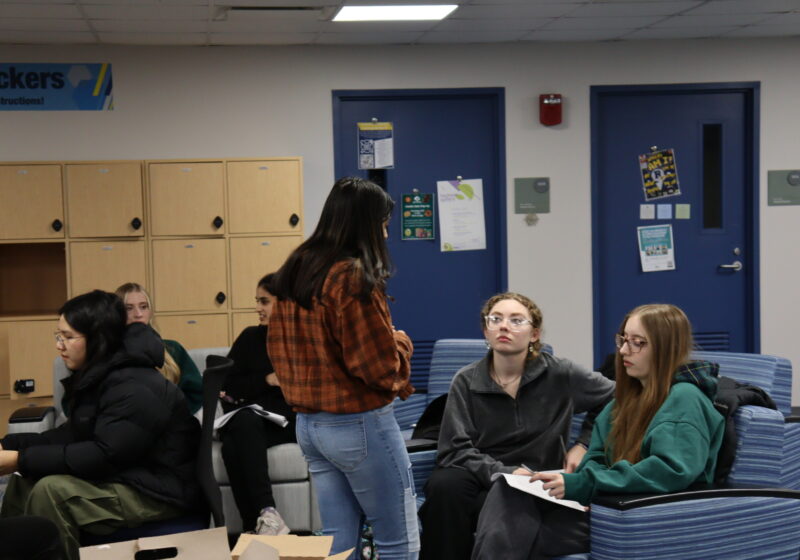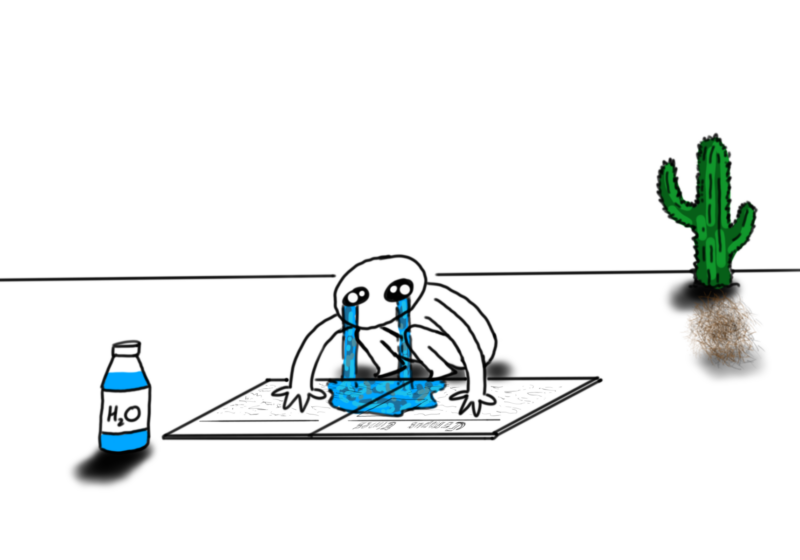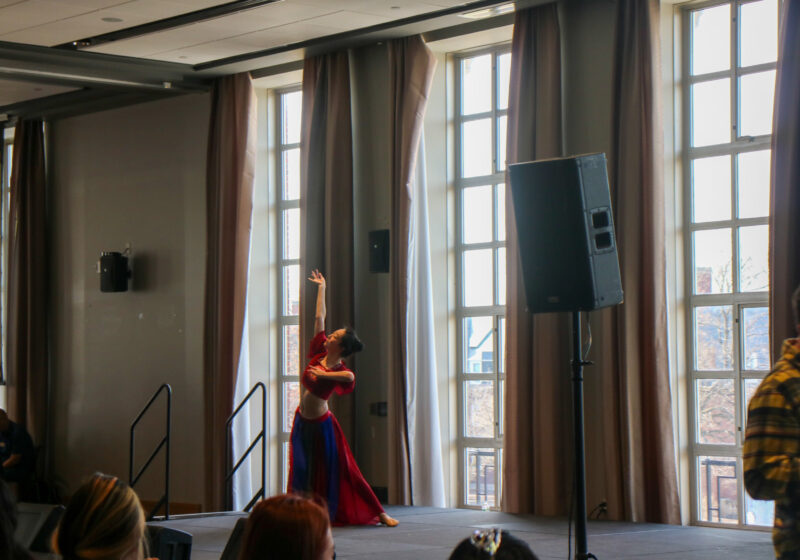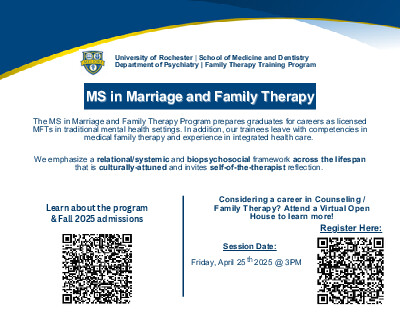No child who ever grew up to be socially acceptable wanted to hear his parents read Charles Dickens’ ‘Hard Times” to him as a bedtime story. No, that time was always always about ‘Robin Hood.”
While children become adults, though, some sentimental attachments never leave. But if not for that fact, it might be difficult to imagine an international conference on Sherwood’s most famous soldier especially one that is now 12 years old.
But ‘Robin Hood: Media Creature” is just that. The biennial event that began in 1997 brought scholars, musicians, theorists and historians to UR this past weekend in order to further contemplate the multicultural icon.
‘I’ve been very impressed,” Wiltshire, U.K. resident Kirsty Robertson said the first day. ‘It looks like it’s going to be a lot of fun. Sometimes these things can be a bit dry, [but] I think this is going to be an exciting conference.”
It all began once upon a time (last Thursday). The adoring fans of Robin Hood had gathered in the Welles-Brown Room of Rush Rhees Library, waiting for University Vice President and General Secretary Paul Burgett to deliver the opening remarks.
Robertson sat beside Virginia resident and aspiring Robin Hood novelist Michael Hughes, whose own interest in the robber chief stems from the 1950s television series starring Richard Greene. Hughes has attended all but one conference since they began.
Around the room, the conference’s presenters scattered to discuss their respective subjects.
‘My hope as a musician is to see what my colleagues are doing in other areas that dovetail with what I’m doing now,” City College of New York professor Orly Krasner said.
None of these people, ostensibly, are outlaws. They are best described as fanboys the kind of people who would go to Comic-Con dressed as the Green Arrow.
The atmosphere was nothing short of electric as Burgett arrived; the man himself was almost giddy, and said he took no convincing to open the conference once he heard the words ‘Robin Hood.”
‘I definitely wanted to belong to the band of merry men,” Burgett stated in his opening remarks. ‘Adventure and danger, fraternity, frivolity, romance and in the end, the good guys prevail and the bad guys get theirs.”
Yet for all the theirs-getting of the bad guys, it was Robin’s archenemy that really got to kick off the proceedings: reigning Sheriff of Nottingham Leon Unczer. The sheriff, brought in via Skype, noted that he’s occasionally had fun with his job like knocking over kids’ sand castles at the beach.
‘[Someone] asked me why I was doing it,” Unczer joked. ‘And I said, “Because I’m the Sheriff of Nottingham!'”
That roughly 100 people attended the conference and only about 40 percent of them came from the Rochester area speaks to the drawing power of a man who died almost eight centuries ago if he lived at all, which is absolutely not a topic to get into unless you are really prepared to talk about it.
English professor Thomas Hahn, the conference’s creator and patron saint, developed his own interest in Robin Hood as a graduate student, but the available kinds of analysis limited what could be done with the legend. That changed with the advent of cultural studies.
‘It was always very difficult to figure out what to do with Robin Hood, since on the one hand it was clear that this was perhaps more popular than any other single text that survived from the Middle Ages, but at the same time it didn’t really fit the profile of literary studies,” Hahn said, reflecting on the conference afterward. ‘In the late ’80s and ’90s, a kind of change in academic approaches took place, and it became clear that there were different ways than simply formal or aesthetic ways to study a text, and Robin Hood in particular really fit this profile wonderfully.”
In short, that is why it’s called ‘Robin Hood: Media Creature,” and the weekend carried that theme well. The Rare Books Library debuted an exhibit filled with mementos and literature, including a flood of variations on Howard Pyle’s 1883 version of ‘The Merry Adventures of Robin Hood” and memorabilia from the 1922 Douglas Fairbanks silent film. The Fairbanks film was restored at Hahn’s request and played Saturday in a sold-out Dryden Theater; Gillian Anderson’s Flower City Orchestra provided accompaniment using the original score.
Sunday morning, the last day of the conference, a few of the attendees unwound in the Staybridge Suites lobby, playing hooky until brunch. Hughes relaxed beside the fireplace, as a University of Chicago student sporting green tights sat on a nearby couch.
‘The more conferences you have, the less there is to do specifically about Robin Hood, because there’s not a lot out there,” Hughes said, thinking of his experiences so far. ‘I think it would be nice if they didn’t diverge that far off base, but I understand they almost have to.”
Still, he said, he has learned a few new things and notes that since it is, after all, a media-centered conference, all in all things went very well.
Indeed, as a media creature, Robin Hood is at his most powerful, taking various forms that continue to inspire. Ridley Scott announced that he’s making a film starring Russell Crowe. The new BBC show ‘Robin Hood” has already spanned three seasons.
Unczer probably captured the sentiment best. ‘Without getting into a religious argument, well, he’s more famous than the Beatles.”
Robin is what Hahn describes as a shapeshifter, being many different things to many different people. What Burgett sees as a merry man of literature standing up to bullies, the New York Times recently interpreted as a socioeconomic equality enforcer made for the current Wall Street climate.
‘I think the interests that have driven him most fruitfully have been narrative interests that this is a good story,” Hahn said. ‘I think the more limited kinds of interests limit his potential in ways that became appealing for some particular subset of audiences, but that drained the kind of energy and abundance that the Robin Hood stories seem to possess when they’re told in their most far-reaching ways. I think it’s that kind of openness to appropriation that makes Robin Hood really infinitely retellable.”
For whatever ends his fans may use him, Robin Hood’s multi-faceted tale allows for it. He is the King of Thieves and a ‘man in tights.” He is an outlaw and a protector. He is an archer and a vigilante. He is a loyal lad and a lusty lover.
It is mostly because of this, really, that dozens have come to honor him this weekend. His metamorphic nature makes him intriguing, being both all things and nothing. He is a god among legends.
How merry.
Brenneman is a Take Five Scholar.




